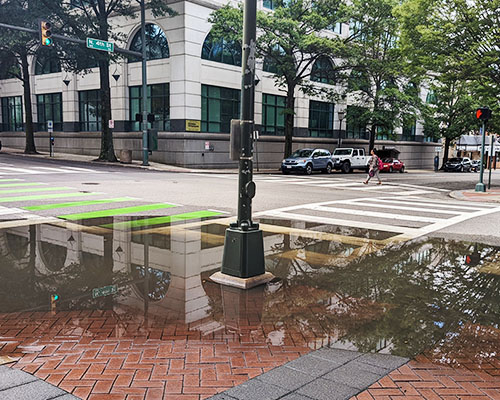Project Details
Abstract
 Several mechanisms exist for identifying sites for upgrading transportation infrastructure for non- emergency maintenance. One key element is the complaints that citizens make about broken or missing features using the 311-service call system. Researchers argue, however, that the types and rates of complaints vary by location type. Over time some places may end up having worse infrastructure simply because not enough complaints are generated there.
Several mechanisms exist for identifying sites for upgrading transportation infrastructure for non- emergency maintenance. One key element is the complaints that citizens make about broken or missing features using the 311-service call system. Researchers argue, however, that the types and rates of complaints vary by location type. Over time some places may end up having worse infrastructure simply because not enough complaints are generated there.
This project will rely on 311 data (2019-2023) available from open data catalogs across case cities in the U.S. We will focus on transportation-sector grievances and generate a new understanding of how regular complaints cluster across census block group typologies. We will assemble 311 data, where available, for case cities roughly the size of Denver, CO. We will append U.S. Census data at the block group level for each 311 complaint, and rely on multilevel statistical models. The key output from this work is to generate a gaps framework by relying on 311 calls and share this knowledge with public-sector engineers and planners.
Project Word Files
project files
- UTC Project Information (Word, 87K)
Note to project PIs: The UTC document is limited to two pages. Also, it would be helpful if the Track Changes feature is used when editing either document above. Updated documents should be emailed to ndsu.ugpti@ndsu.edu.